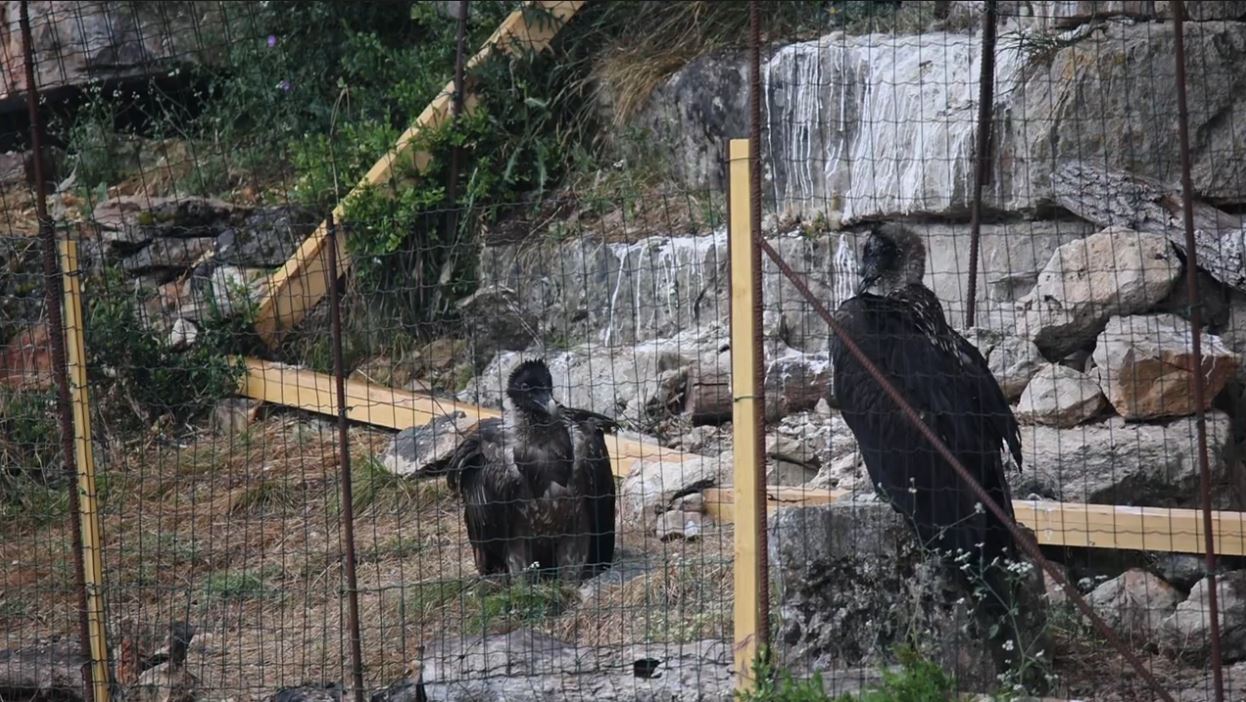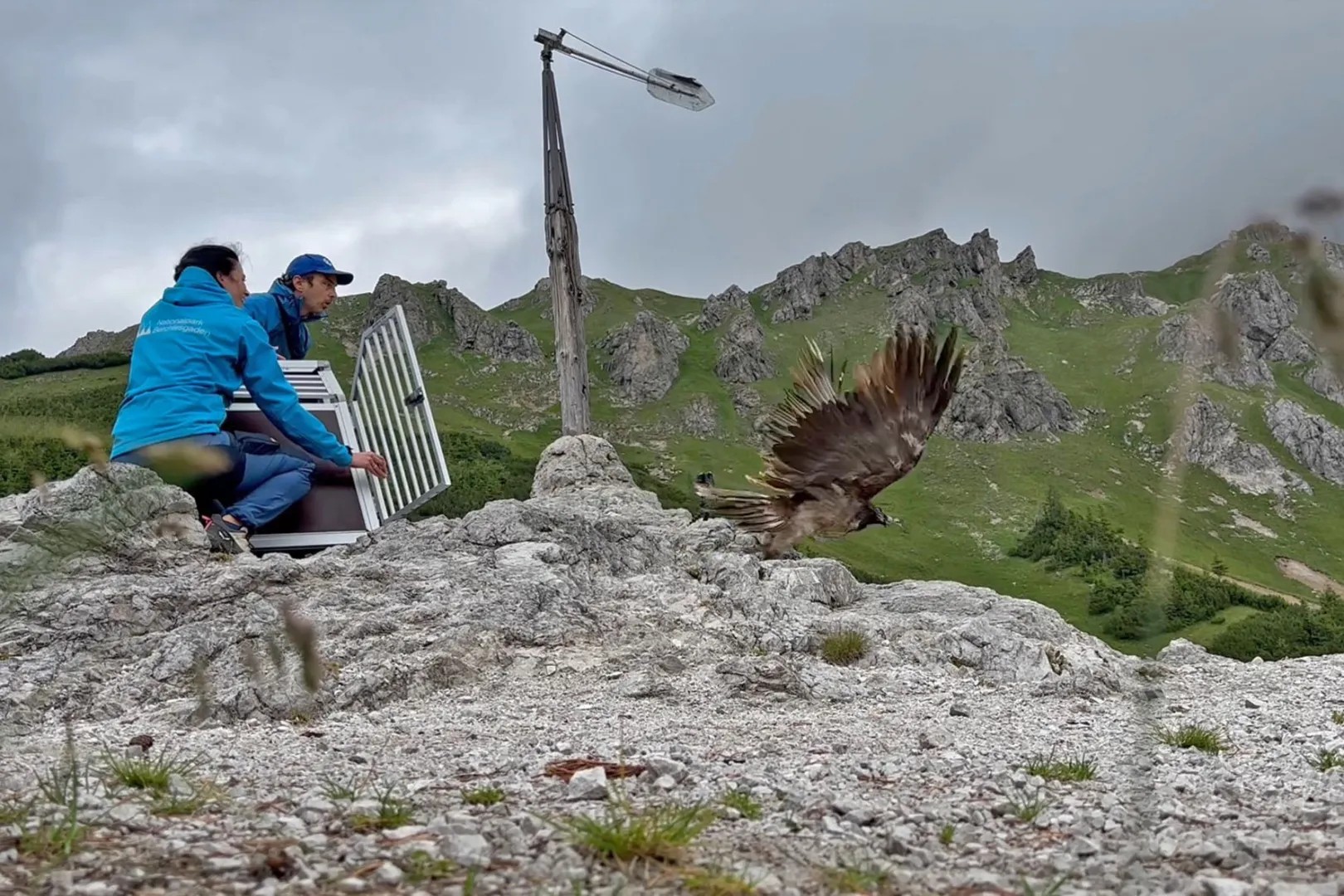After releases in Andalusia (5 birds so far – see photos of the last release), Corsica (2 birds), Grans Causses (2 birds), Baronnies (2 birds) and Central Switzerland (2 birds), the 14th bearded vulture to be released this year in the VCF programme to restore the species across Europe will be put in the same hacking platform used for the first two birds in Andalusia. Another young will be released in Andalusia this year by mid-July.
The bird to be released today is a female coming from Ostrava zoo. The bird was transferred first by car to Vienna (Austria) and from there by plane to Madrid where the staff from Fundación Gypateus picked up the chick.
Its parents were both born in 1999, the dada in the Richard Faust bearded vulture captive breeding centre in Austria, the female at Tierpark Friedrichsfelde. They arrived at Ostrava zoo the following year and with 9 years they started to reproduce. Unfortunately the first two breeding seasons the parents killed the chicks, so it was to remove the eggs and give them to a foster pair – four chicks were thus produced in subsequent years. In 2014, it was decided to try again the natural hatch in the nest. The third day after hatching, the female rejected the chick. However, thanks to a new installed video camera, it was possible to recognize why the chick was rejected: the parents were not able to feed properly the chick, and so he became weaker and weaker, and lost any reaction. So last year, with the help of supplementary feeding by the zoo staff, a chick could be successful reared by the parents, as it never did stop to beg for food. This stimulated the parents to feed the nestling. This year, thanks to the experience acquired by its parents last year, only a few nest controls were necessary – looks like the parents learnt the way!
Inexperienced Bearded vulture parents have to learn how to feed a chick – how to prepare food in adequate size and how to hold it in front of the chick´s bill, as in this species the chicks actively take the food from its parents bill, unlike other species where the parents introduce the food in the offspring´s bill. If the food has not the appropriate size and/or the parents are not holding it correctly, the young one becomes weak very rapidly and stops begging for food.
In a few weeks’ time this chick will be flying in the same skies as Tono & Blimunda, the adult pair that bred successfully last year in Andalucía, the first time the species nested in southern Spain for more than 30 years – a fantastic milestone in a project that only started 10 years ago. This year Tono & Blimunda prepared the nest, but unfortunately they did not lay any eggs.
The Andalusia Bearded Vulture Reintroduction Project is funded by the Andalusia Government. The project is managed by the Fundación Gypaetus and the VCF collaborates as partner. This project is included in the European conservation strategy for the species.
Photos: Junta de Andalucía



